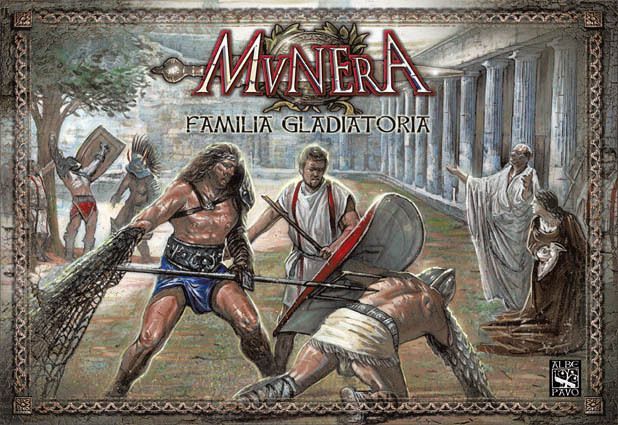MUNERA: Familia Gladiatoria (2010) Board Game
MUNERA: Familia Gladiatoria is a board game released in 2010, designed by Jocularis and illustrated by Albe Pavo. The game is set in ancient times, focusing on gladiator combat and economic management. Players take on the role of a lanista, managing a ludus and training gladiators to compete in the arena.
Game Components of MUNERA: Familia Gladiatoria
How To Setup MUNERA: Familia Gladiatoria
To set up the game, each player receives their own gladiator school, or gymnasium. The spectacle board is placed in the center, and each player selects their starting gladiators and staff. The staff cards are auctioned off to determine their order and availability. The game is ready to begin once all players have their gladiators and staff in place.
Gameplay Mechanics and Game Objective
Player Experience
Players take on the roles of lanistas, ancient managers of gladiators, and are immersed in the atmosphere of Roman circus games. The game involves strategic planning, resource management, and a bit of luck through dice rolls. The betting and bluffing mechanics add a social and interactive layer, making the game engaging for all players involved.
Pros
Cons
Personal Thoughts on MUNERA: Familia Gladiatoria
**MUNERA: Familia Gladiatoria** is ideal for players who enjoy strategic games with a historical twist and social interaction. It is best suited for those who appreciate the intricacies of resource management and the unpredictability of dice rolls. While it can be complex and lengthy, the game offers a rich and immersive experience for fans of ancient Roman culture and competitive gameplay.
We are supported by our audience. When you purchase through links on our site, we may earn an affiliate commission, at no extra cost for you. Learn more.

